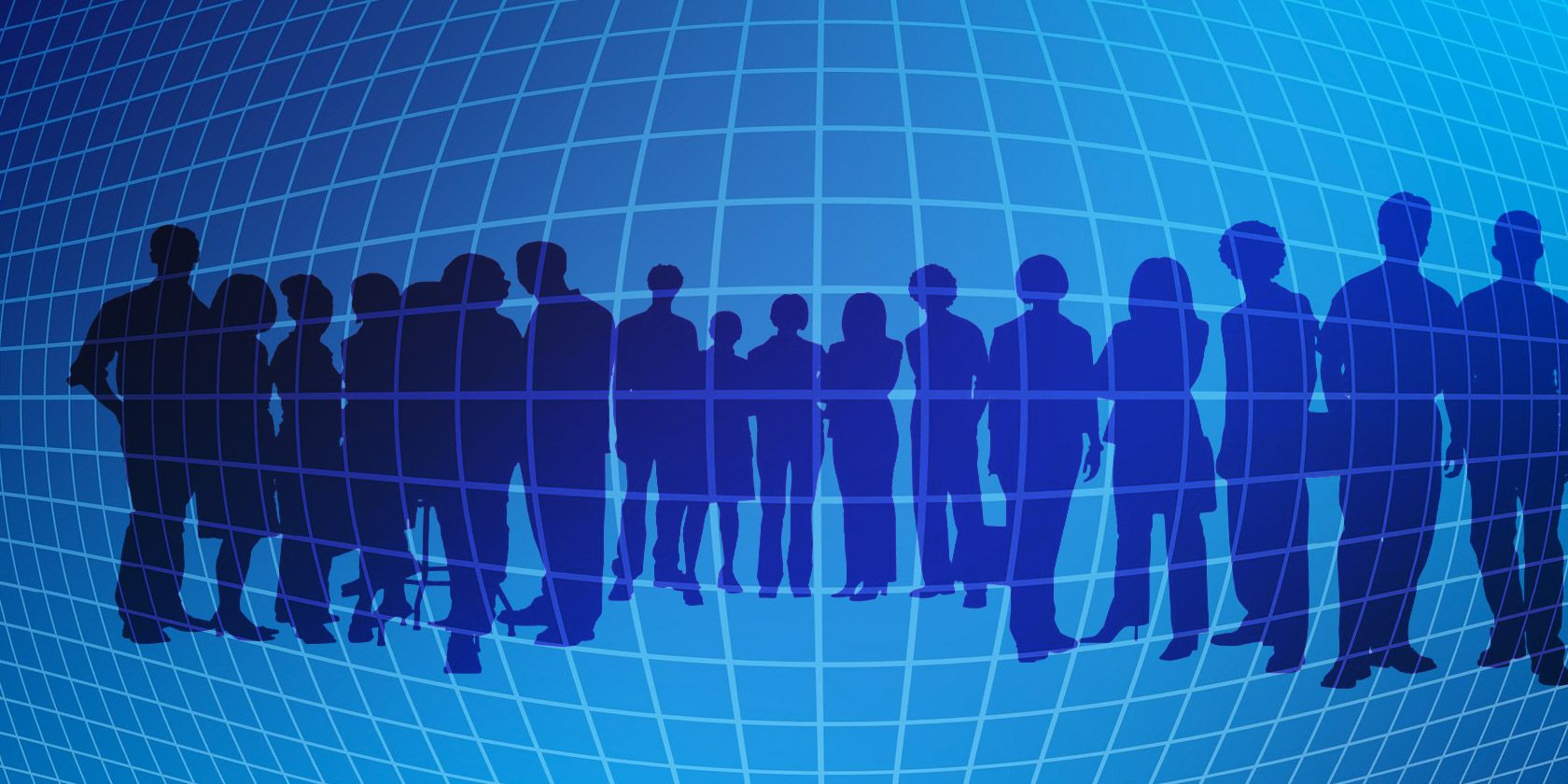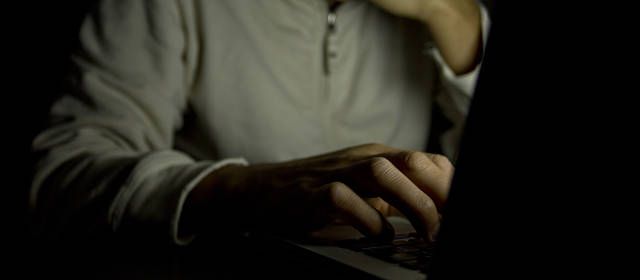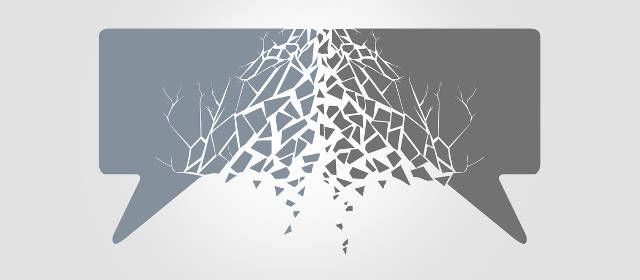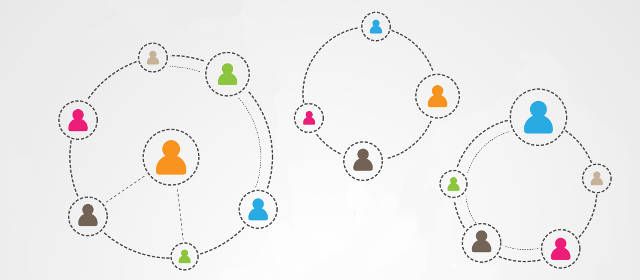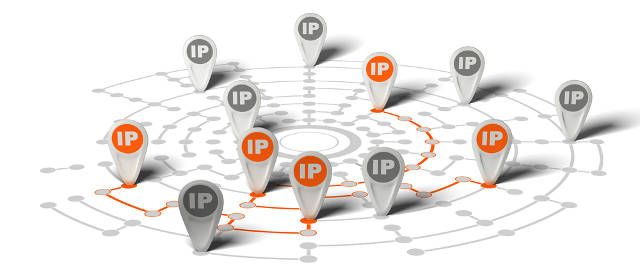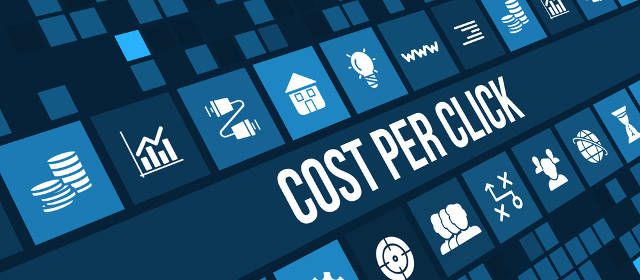Not long ago, I made a case for why we all need online anonymity, and while I still believe that online anonymity has its merits, we can't ignore the fact that it has its flaws as well -- and it's only fair that we explore those downsides.
But first, let's define online anonymity. Ideally, there would be two separate but related components to it. First, no action or piece of data that you contribute to the Internet could be traced back to the device you used. Second, nobody could track your activity across the Internet.
Online anonymity doesn't mean we can't use names and identifiers. It simply means that our connection to the Internet is anonymous. You could still have an online identity, but nobody could tie that to your offline identity (unless your tongue slips). It sounds great in theory, but here's how it could backfire.
1. We Lose Accountability
In 2009, scientists from the University of Southern California suggested that the fast pace of the Internet and social media could be impacting our capacities for human empathy. Our brains need time to process empathetic responses, and the Internet is too fast for that.
Not only that, but when we're on the Internet, it's easy to forget that real people are behind the usernames that we interact with. We already have this great divide between people on the Internet -- how much worse would it get if true anonymity became a fundamental element of the Web?
It's not unreasonable to suppose that we'd learn to start viewing everyone as disembodied strangers, thus driving us to lose even more of that human connection that's already so rare.
But people would also lose their sense of accountability. There's a growing body of evidence suggesting that people already act out more often when they can hide behind the pseudo-anonymity of the modern Web (it's called the online disinhibition effect).
Imagine how much more people would act out if they knew that their words and actions couldn't be traced back to their offline identities? And I don't just mean verbal attacks and death threats, but things like slander, hoaxes, and circulation of false truths. It would amplify the parts of the Internet that are already dirty.
In some sense, these two issues -- loss of empathy, loss of accountability -- are two sides of the same coin. When we don't have to fear consequences for our actions, it can make us less human, and the more disconnected we are, the easier it will be to be further disconnected from others.
2. We Lose Moderation
We tend to think of the Internet as the last bastion of free speech, but in a lot of ways it's the exact opposite. When you're part of an online community, you agree to abide by the rules of that community. If you don't, they can kick you out. Nothing wrong with that.
But if we had true anonymity, we'd lose this. Think about it. Right now, apart from any accounts you may create, the best way to identify you on the Internet is by your IP address. If you disrupted an online community, the easiest way to expel you would be to ban your IP address.
Now imagine if the Internet had no IP addresses. How would a moderator ban a particularly nasty or disruptive user? They could ban that user's account... and then that user could just go and create another one. (Normally, banned users are prevented from making new accounts because their IP addresses are logged.)
Pseudo-anonymous communities like Reddit and 4chan already suffer from these issues even with the availability of IP logging. Moderation is important for things like spam, too. If you want to allow comments on your blog, for example, the "identity ban" is a crucial tool to have.
Why not just ban using another identifier, such as email address? Well, that just pushes the problem up one level. What prevents me from creating a million email addresses (again, no IP logging to prevent this)? I can then use those email addresses to circumvent a million bans. Good luck trying to get rid of me!
3. We Lose Big Communities
The losses of accountability and moderation will drive Internet users towards two separate extremes: the people who use anonymity to ramp up their antics and do whatever they want, and the people who want to avoid all of that disruptive nonsense.
How do you maintain a respectable community when you can't ban those who instigate chaos for the fun of it? (You may know them as trolls.) If you can't kick them out, then you have to prevent them from finding you in the first place.
Private, secret, invite-only online communities aren't anything new, but if the Internet ever became truly anonymous to the degree that some people want, then I think it's inevitable that all communities will shift in that direction because big communities would be impossible to keep in check.
In essence, "mature" folks will hunker down and seek shelter in hidden oases across the eventual wasteland of "immature" trolls that the Internet would become -- like small villages hoping to evade the torch-wielding bandits that seek to raze the entire countryside.
Of course, this depends on what the ratio would be between mature and immature folks. If you're optimistic, anonymity could result in a cyber-utopia. But seeing how many trolls already exist in a pseudo-anonymous Internet, I don't think we can be that optimistic.
4. We Lose Criminal Evidence
Let's say accountability gets thrown out the window, to the point where it's truly impossible to determine who wrote that post, uploaded that video, or connected to that website. What happens when someone does something that breaks the law?
I don't mean lightweight activity like torrenting the occasional TV show or music album. I'm talking about crimes along the lines of child porn distribution, Dark Web identity theft, and botnet DDoS attacks. What would we do in cases like these?
Online anonymity is a double-edged sword for this very reason. It protects innocents and criminals alike, which wouldn't be a bad thing in and of itself, but it also severs an important form of evidence. How do you convict someone when you can't trace the crime to them?
I know, IP logs feel like an invasion of privacy. I know, they can be abused in ways we don't like. But at the same time, nobody can deny that IP logs are instrumental in bringing criminals to justice. Can you imagine how much more spam there'd be if spammers couldn't be tracked down or banned?
5. We Lose a Free Web
This last point may be contentious, but I sincerely think it's one worth considering. Online anonymity implies a greater degree of online privacy, which means it should be near impossible to track our browsing habits -- and that could result in an Internet that's radically different from what we know today.
Here's what I mean. Whenever you visit a website that has advertisements, those ads can collect data about you. The individual data points are small -- such as your IP address and which browser you're using -- but over time, the collected data can be compiled into profiles that describe your Web browsing patterns.
There are other -- seemingly harmless -- elements that could be used to track you, such as social media share buttons and sites that use Google Webfonts. But in any case, the important thing is that advertisers can build profiles on you and use that info to display relevant ads.
Assuming a truly anonymous Internet where user browsing habits can't be tracked, we would likely see a significant blow to the Web advertising industry. And though that might sound like a good thing right now, it could lead to some severe, unforeseen ramifications. A be-careful-what-you-wish-for kind of situation.
Namely, if advertisers can't build profiles, then they can't target individuals with relevant ads. Without targeted advertising, they'd likely start paying less for Internet ad space. Websites would earn less from advertisements, probably to the point where they can't afford to produce free content.
I could be wrong about this (in fact, I hope I am) but it wouldn't surprise me if the rise of online anonymity eventually led to the death of free content. Well, free content will always exist, but there'd likely be a big drop in quality. All the good stuff would probably shift behind paywalls of various sorts.
Online Anonymity May Even Be Possible
All of this is assuming that online anonymity is even possible -- which it might not be. Sure, we have things like private browsing on Tor networks, but even then it's just a more obfuscated form of pseudo-anonymity.
As of now, in its current state, the structure of the Internet makes true anonymity impossible. However, alternate Internets -- ones that don't rely on things like IP addresses -- are currently being researched and developed. For example, Kim Dotcom's MegaNet seems to show a lot of promise.
Or maybe it's all just a pipe dream. Who knows? All we can do is wait and see how everything develops from here.
How do you feel about online anonymity? Does the good outweigh the bad? Or vice versa? Would you switch to a 100% private alternate Internet? Tell us what you think in the comments below!
Image Credits: Shadowy Computer User by icsnaps via Shutterstock, Colliding Speech Bubbles by Lightspring via Shutterstock, Separate Communities by Mert Toker via Shutterstock, IP Flags by Olivier Le Moal via Shutterstock, Cost Per Click by Ahmetov Ruslan via Shutterstock

